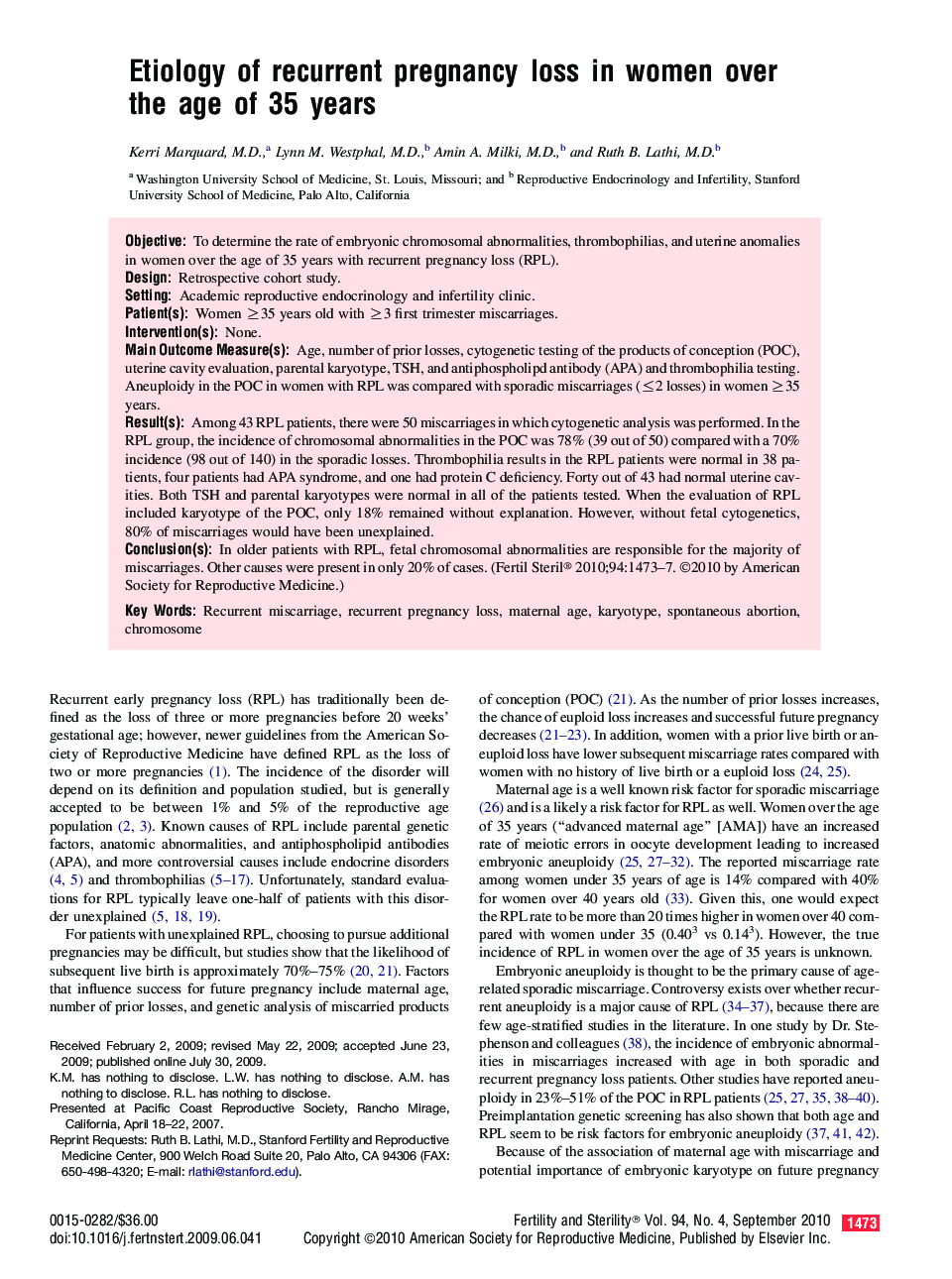| Article ID | Journal | Published Year | Pages | File Type |
|---|---|---|---|---|
| 3938166 | Fertility and Sterility | 2010 | 5 Pages |
ObjectiveTo determine the rate of embryonic chromosomal abnormalities, thrombophilias, and uterine anomalies in women over the age of 35 years with recurrent pregnancy loss (RPL).DesignRetrospective cohort study.SettingAcademic reproductive endocrinology and infertility clinic.Patient(s)Women ≥35 years old with ≥3 first trimester miscarriages.Intervention(s)None.Main Outcome Measure(s)Age, number of prior losses, cytogenetic testing of the products of conception (POC), uterine cavity evaluation, parental karyotype, TSH, and antiphospholipd antibody (APA) and thrombophilia testing. Aneuploidy in the POC in women with RPL was compared with sporadic miscarriages (≤2 losses) in women ≥35 years.Result(s)Among 43 RPL patients, there were 50 miscarriages in which cytogenetic analysis was performed. In the RPL group, the incidence of chromosomal abnormalities in the POC was 78% (39 out of 50) compared with a 70% incidence (98 out of 140) in the sporadic losses. Thrombophilia results in the RPL patients were normal in 38 patients, four patients had APA syndrome, and one had protein C deficiency. Forty out of 43 had normal uterine cavities. Both TSH and parental karyotypes were normal in all of the patients tested. When the evaluation of RPL included karyotype of the POC, only 18% remained without explanation. However, without fetal cytogenetics, 80% of miscarriages would have been unexplained.Conclusion(s)In older patients with RPL, fetal chromosomal abnormalities are responsible for the majority of miscarriages. Other causes were present in only 20% of cases.
